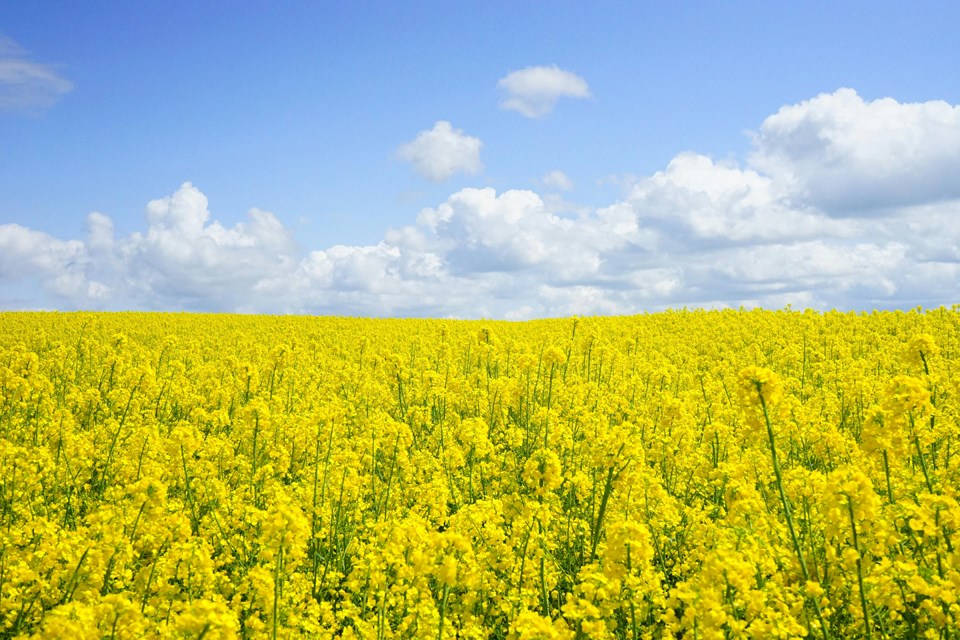Now that Donald Trump has taken a wrecking ball to the world economic order and shattered the once-unshakeable bond between Canada and the United States, it is time to rethink the choices Canada has made to protect what were once mutual interests.
Top of that list: the 100 per cent tariff Canada imposed on China-made electric vehicles at the urging of former U.S. president Joe Biden’s administration.
The goal was to shield Ontario’s auto sector. After months of hesitation, Canada reluctantly followed Biden’s lead, imposing the EV tariff along with a 25 per cent tariff on Chinese steel and aluminum, effective Oct. 1, 2024. Washington had applied intense pressure after Biden slapped 100 per cent tariffs on Chinese EVs and other goods.
The Biden administration had poured hundreds of billions into subsidies to lure car and battery makers into building U.S. supply chains. Ottawa, betting on the deeply integrated North American auto industry, likewise committed tens of billions to attract foreign automakers like Honda, Volkswagen, Stellantis and Northvolt to build plants here.
But the fallout has been brutal for western grain growers, especially canola producers. Predictably, China retaliated in March, hitting Canadian canola, canola meal and peas with 100 per cent duties, along with a 25 per cent tariff on certain seafood products.
The damage is severe: about $1 billion in canola losses alone and roughly $4 billion across agricultural and seafood exports. Canola is critical to Canada’s economy. Some 40,000 farmers grow it, and Saskatchewan alone accounts for nearly half of the crop’s $43.7-billion contribution to the national economy.
It’s hard to overstate the blow. China is Canada’s second-largest market for these exports, and its closure has left farmers reeling. Many now openly wonder if this is yet another instance of western interests being sacrificed for Ontario.
“[The federal government] is quite willing to let the Canadian farmer be sacrificed like this and take a real hit,” said Roger Chevraux, an Albertan canola farmer and a director on the board of the Canadian Canola Growers Association. “I don’t think that’s fair.”
Any action perceived as unfair to the West is especially dangerous at a time when Alberta Premier Danielle Smith and her mentor, Preston Manning, are stoking regional resentment. Ottawa must remember that while Ontario may hold more votes, ignoring the West imperils national unity.
And Ottawa should have seen this coming. China took similar action in 2019 after Canadian officials, honouring a U.S. treaty, arrested Huawei executive Meng Wanzhou. That ban lasted over two years and cost the sector an estimated $1.5 billion to $2.3 billion in lost sales and lower prices.
Perhaps Ottawa thought the trade-off worthwhile at the time. No one has admitted it, but it’s clear the government knew Canadian farmers would bear the brunt of China’s retaliation.
But that was before Trump set out to destroy the foundations of North American trade. Accusing Canada of stealing U.S. manufacturing, he has threatened to “permanently shut down the automobile manufacturing business in Canada.” He also vows to revoke the electric vehicle mandate that drove automakers to commit over $1.2 trillion to EV and battery production—a move designed to throttle EV demand.
This leaves Ontario’s auto sector in a perilous position. Without reliable, long-term access to the U.S. market, how can Canada’s auto industry justify decades-long investments? If Canada can’t secure open access under a renegotiated CUSMA—a treaty Trump himself signed but now disavows—what exactly are we protecting? Unless someone stops Trump’s rampage, how much of an auto sector will remain in Canada? And is the sacrifice of western farmers still defensible?
There is, at least, a glimmer of hope. Canada could extend an olive branch to China, which needs what we offer. China’s vast aquaculture industry depends on canola meal, and Canada is its largest supplier. That gives us leverage.
Whoever becomes prime minister after the April 28 election should make an early trip to China to explore ways to de-escalate this costly trade war. Tariffs are an American obsession. Canada’s future depends on forging partnerships with countries that refuse to play by Trump’s destructive rules.
Doug Firby is an award-winning editorial writer with over four decades of experience working for newspapers, magazines and online publications in Ontario and western Canada. Previously, he served as Editorial Page Editor at the Calgary Herald.
The commentaries offered on SaskToday.ca are intended to provide thought-provoking material for our readers. The opinions expressed are those of the authors. Contributors' articles or letters do not necessarily reflect the opinion of any SaskToday.ca staff.




